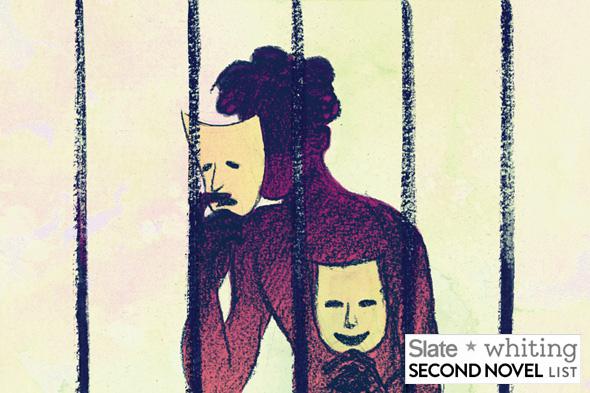During the rioting of the Paris Commune, Turgenev wrote to Flaubert: “Oh we have hard times to live through, those of us who are born spectators.” The fate of being born spectators—one can hardly imagine Turgenev raise a weapon at a Parisian barricade as he would at a hunting ground.
What’s the price one pays to escape that fate? That seems a central question in Daniel Alarcón’s second novel, At Night We Walk in Circles. Set in an unnamed South American country, the novel is the third pick of the judges for We Second That: The Slate/Whiting Second Novel List.
Fifteen years ago, Diciembre, a theatre company composed of posers of all kinds, became a cause for freedom when its leading actor and playwright, Henry Nuñez, was prisoned as a terrorist for his play, The Idiot President. In 2001, following a civil war that’s being erased from memory as the country reimagines itself as a place “where all that unpleasant recent history had never occurred,” Henry lets himself be talked into a tour to celebrate the play’s 15th anniversary. The three-man troupe—Henry, his business manager and fellow actor Patalarga, and the young actor Nelson—travels the inland villages and towns, performing each night for whoever shows up.*
This is a book about acting and impersonating. Nelson, having an affair with his ex-girlfriend, Ixta (herself an actress), impersonates a cousin of hers on the phone when Ixta’s current boyfriend is with her. Henry, in his nondescript professional life post-prison, plays the role of a schoolteacher until the revival of the play puts him into another role—one in which he can tyrannize Nelson, who idolizes him. Patalarga plays the servant on- and offstage with the same sabotaging slyness.
But to make a distinction between onstage and offstage is inaccurate: There is not a divide. The three actors live out rather than act out the script, and even the most brilliant improvisations do not allow them to stray too far. And the same is true for everyone in this unnamed country. In a vivid scene, before the troupe sets out on a bus trip, the travelers in their seats are recorded by a video camera—in case the bus plunges a cliff, these smiles would be the last images for those left behind. Henry “flashed an enthusiastic two thumbs-up,” and Nelson “forced a smile”; around them “some smiled, some waved, some blew kisses.”
The bus does not plunge; all goes well until out of a whim—a fatal revision—Henry leads the tour to an ominous ending, which circles back to the prison, Collectors, where he once served his time.

Photo by Adrian Kinloch.
The novel is narrated by a young journalist—again unnamed—who has crossed paths briefly with Nelson. The journalist’s remove is temporal (everything is scrutinized in retrospect) and physical (apart from one moment, the narrator is lagging behind in his chasing and recreating the events). But in his dogged pursuit of all those involved in a fatal incident—from the central characters to peripheral ones—the narrator is constantly striving to shorten the distance between Nelson and himself. Is it a narrative device, as some may suggest, or is it something more interesting and poignant? The narrator to me is the most fascinating character: Masked by journalist interests, he is a spectator who goes on a quixotic quest to become a part of the play. And who can blame him? Those born to be actors, equipped with a script, some lines, a few props and costumes, can at least afford the illusion of having participated; those born to be spectators are bound to have hard times to live through.
Correction, Dec. 4, 2014: This article originally misspelled the name of the character Patalarga. (Return.)
—
At Night We Walk in Circles by Daniel Alarcón. Riverhead.
Previous Slate/Whiting Second Novel List picks:
Dan Kois on Helen DeWitt’s Lightning Rods.
Sasha Weiss on Eileen Myles’ Inferno.
See all the pieces in this month’s Slate Book Review.
Sign up for the Slate Book Review monthly newsletter.
